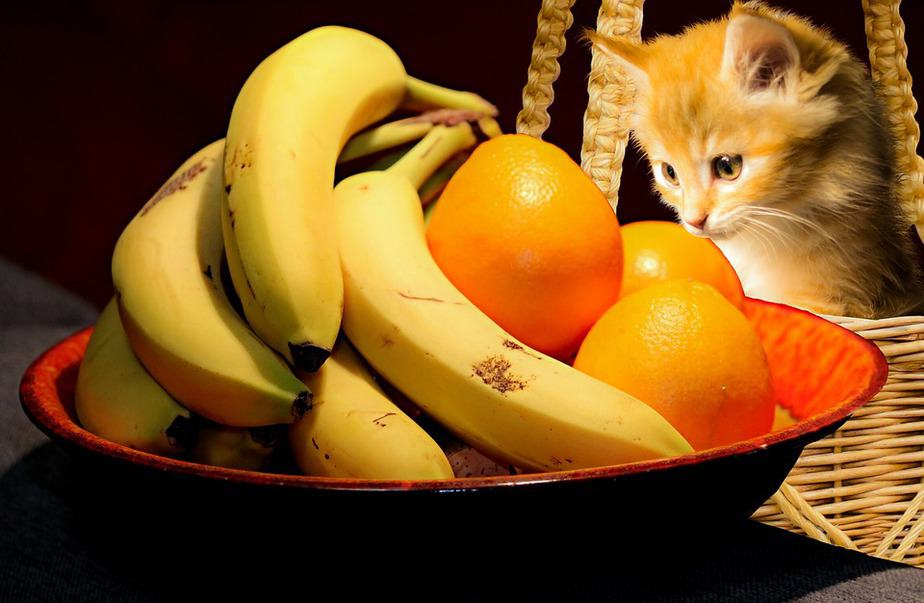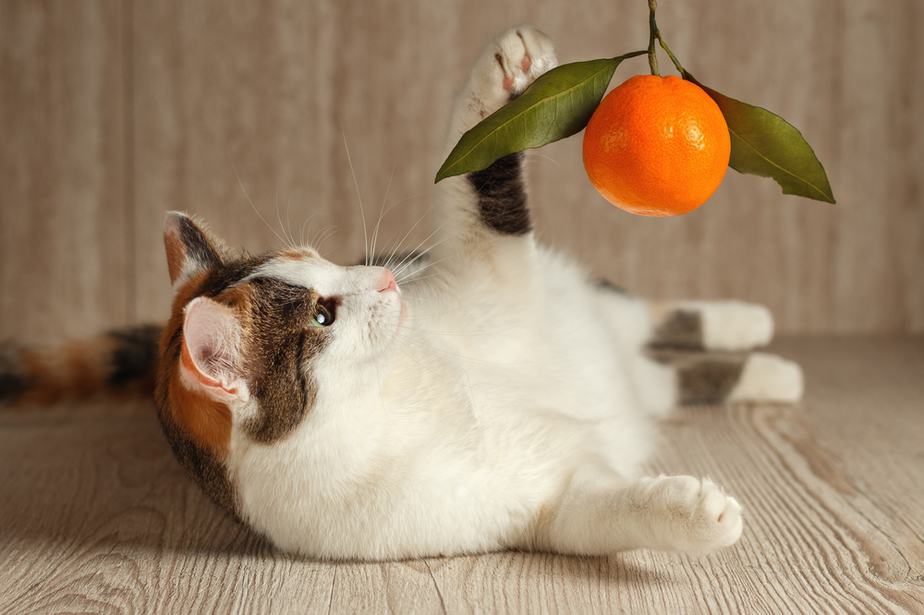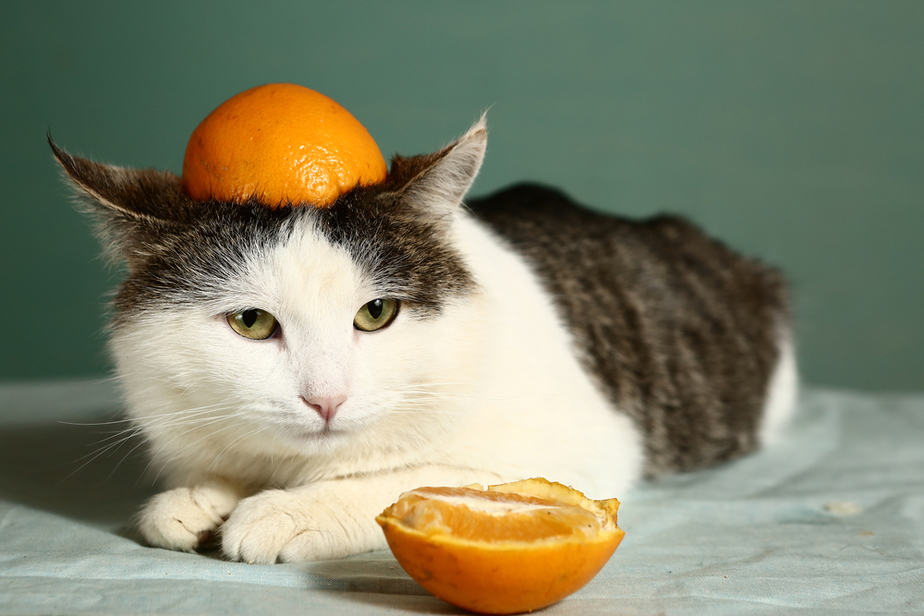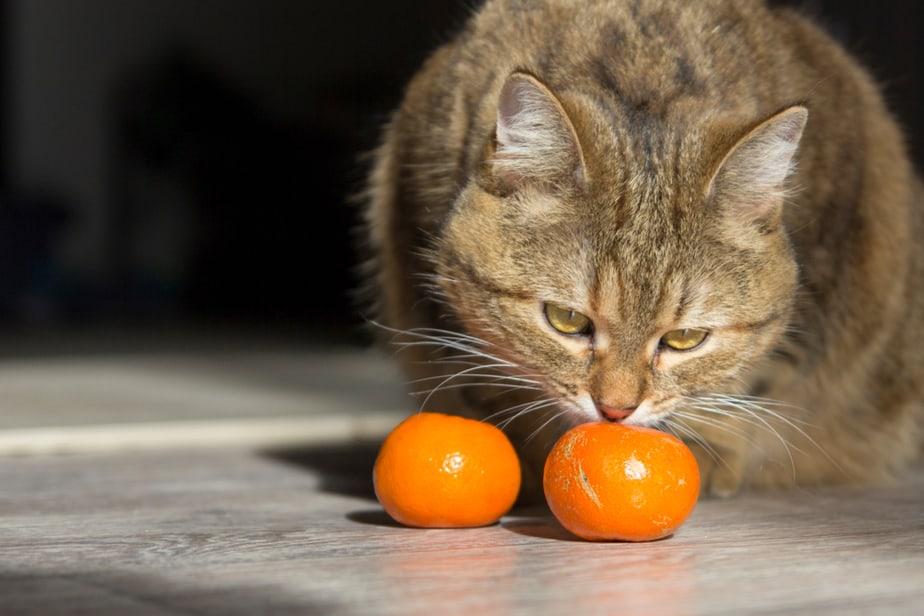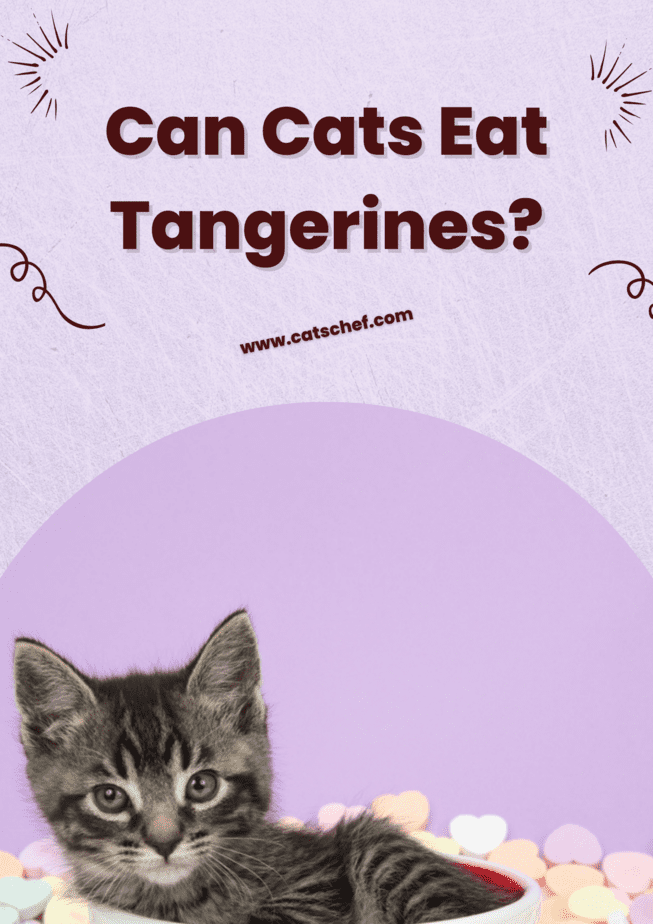📖 Table of Content:
- Do cats like tangerines?
- Can cats eat tangerines? Are they safe?
- How are tangerines harmful to cats?
- Is that it?
- Can cats eat tangerine peels?
- What about other parts? Can cats eat tangerine leaves and stems?
- Can cats eat tangerine seeds?
- Could tangerines benefit cats?
- Can cats eat dried tangerines?
- To sum up
These brightly colored fruits and their strong, enticing smell are popular in the human world. However, we aren’t so sure about the cat world. Can cats eat tangerines, and if so, do they like them?
Citrus fruits appeal to humans with their distinct aroma and fresh taste. We’re not sure we can make the same claim for our furry friends.
Fruits are known to be high in nutrients for humans, but perhaps some can be included in our cats’ meals as well.
They are sweet at times and bitter at others. To be fair, that applies to both the fruits and our four-legged friends. But, returning to the citrus, tangerines can taste overpowering for some people – and it may cause your cat to wrinkle her nose as well.
Do cats like tangerines?
Many cats are mischievous creatures who have a reputation for being stubborn. We all know what happens when your pet goes on an adventure, especially when it involves your plants.
Cats may devastate a person’s garden by destroying plants or replacing the backyard with a big litterbox. Therefore, we all try a number of methods to keep cats out of our gardens. Citrus fruits, such as lemon might just do the trick.
If you want this to work, apply a spray made of citrus fruits like tangerines or mandarins on your house plants or around the garden. The foul odor will almost certainly deter your feline friend from your flowers and keep them somewhat safe in the future.
The fact that the strong aroma of citrus fruits repels cats is reason enough for us to assume that they won’t (or can’t) consume them. After all, they’re intelligent tiny animals who trust their instincts. Their attention will most likely diminish after a few sneezes.
Although the term “hate” is a harsh one, it accurately reflects how cats feel about tangerines. They have a unique perspective on this citrus fruit. While people enjoy the pleasant scent of citrus fruits and utilize them in a variety of ways, cats dislike them.
We employ tangerines in cuisines and as natural air fresheners to give us that bittersweet flavor and scent. Your furry family member, on the other hand, will most likely flee from the citrus-sprayed plants.
Can cats eat tangerines? Are they safe?
Tangerines are, sadly, poisonous to cats. While nothing is keeping you from enjoying tangerines as a healthy snack, keep your feline away from these fruits. Other citrus fruits such as mandarin oranges, limes, and grapefruits are also toxic to cats.
If you had intended to share some fruit salad with your pet, this may be disappointing news. Don’t worry, your cat doesn’t need these fruits’ health advantages. They supply a lot of nutrition to people, but sharing (with your cat) is not caring in this case.
Because they are potentially hazardous to felines, she should avoid them. However, you shouldn’t be concerned about your cat eating tangerines. As we previously mentioned, they are naturally repulsive to her because of their overwhelming odor.
How are tangerines harmful to cats?
Although it’s unlikely that your cat may die as a result of eating a tangerine, why risk it? These fruits contain essential oils including limonene and linalool, as well as psoralen, which makes them dangerous for cats.
These are organic, naturally occurring compounds that would cause mayhem in a cat’s body if ingested! Check for any indications of poisoning if you arrive home to a half-eaten fruit salad containing tangerines. Some of the warning signs include drooling, vomiting, diarrhea, and abdominal pain.
So, if you see your cat drooling next to your bowl of fruit salad, it’s not because she thinks it’s tasty. Therefore, we propose supervising your pet any time she comes in contact with any citrus fruits.
However, just because cats cannot eat tangerines, this isn’t to say you shouldn’t eat them, as they do have certain health advantages for humans. Would it have been different if tangerines were safe for cats?
Is that it?
Unfortunately, tangerines have more health hazards than just essential oils. Next to these, these orange fruits are high in sugar. That’s why we love them, but when it comes to felines, this is another thing to be careful about.
Carbohydrates aren’t good for your cat and are completely unnecessary in her diet. Cats are unable to absorb it because it’s a plant material and even good sugars present in fruits can be hazardous to your cat.
This inability to process the carbs causes a carbohydrate build-up, which leads to fat accumulation. We believe that putting a few more pounds is cuteness overload, but we’re sure your fluffy pal won’t have the same opinion.
Chubby cats often experience additional strain on their joints, which can potentially lead to arthritis in older felines. In addition, pets with high cholesterol are at risk for heart disease and stroke.
Lastly, citrus might irritate her skin, resulting in allergic dermatitis. Sneezing, wheezing, stuffy nose, as well as skin rashes, are some of the symptoms of this condition.
Can cats eat tangerine peels?
By now, every cat parent has been proven that nothing can stop their furkid. Our furry devils become unstoppable when they get curious about any food whatsoever.
Fruits are excellent, healthy snacks that you can carry anywhere you go. When it comes to tangerines, this might result in strewn, unattended peels, providing an ideal chance for cats to inspect these bright fruits.
The color and just the overall ball-like appearance of tangerines might be enough to entice your feline. If you see she can’t help herself, make sure to intervene. Cats can eat tangerine peels, but not without consequences.
The most harmful part of this fruit is the peel. Tangerine peels contain huge concentrations of limonene and linalool, and therefore, they are the most toxic part of this fruit.
Humans have to thank these organic compounds for the smell and the flavor they give to tangerines. Still, cats will probably disagree with us because the smell of tangerines doesn’t tickle their fancy.
Felines’ senses are far more superior to those of humans, so they experience aromas in a different way than us. Therefore, it’s doubtful that they’ll be overjoyed with tangerine peels and highly unlikely that your pet will want to eat some.
What about other parts? Can cats eat tangerine leaves and stems?
First and foremost, why would your cat want to eat the tangerine leaves? Now I see why cat owners think this question is ridiculous. Sure, there are a few oddballs, but cats seldom show any interest in eating this part of the fruit.
However, if you have a rambunctious pet, she may find herself in a similar scenario. Stop her from nibbling on it right away, as the leaves of this citrus fruit are extremely hazardous to cats.
It’s the same with leaves and stems as it is with peels. Psoralen, a photocarcinogenic chemical present in all portions of tangerines, has been linked to cancer development in cats.
This implies that ingesting large amounts of this material might be the cause of some serious health concerns.
So it’s better to stay safe and not take any chances. Put the peels and leaves in the trash can and you’re good to go!
Can cats eat tangerine seeds?
This is an unequivocal no. Tangerine seeds, like the leaves and fruit, are deadly to cats. Fruits such as tangerines generate cyanogenic glycosides, which are toxic compounds. This means that your cat should avoid tangerine seeds at all costs.
When the seeds come into contact with acids in a cat’s digestive tract, cyanide is produced. This is a plant toxin that may be found in seeds, stems, and leaves. It can even be harmful to people, causing gastrointestinal problems; and leading to death if ingested in larger amounts.
While this vibrant-colored citrus fruit may look captivating, it’s in fact toxic as a whole. From peels to seeds, tangerines are as poisonous as lemons and other citrus fruits.
Could tangerines benefit cats?
We’ve been encouraged to consume a lot of nutritious foods like fruit since we were children in order to grow up healthy and strong. So, what is it about tangerines that makes them so beneficial?
Vitamin C is the one component that sticks out the most. Citrus fruits are loaded with vitamins like these. However, most of these advantages are ineffective for felines.
Vitamin C, for example, is essential for humans, but cats produce it naturally in their liver.
Vitamin C is a healthy nutrient that benefits a number of bodily functions as well as the immune system. It assists in the absorption of iron as well as the synthesis of collagen. This is beneficial to the teeth and bone health of your cat.
Cat’s liver generates enough vitamin C to keep them healthy, so they don’t need tangerines as an additional source of this health supplement. However, we are dependent on a number of different foods to keep us supplemented with vitamin C.
When we have a cold or the flu, we normally turn to vitamin C tablets. It aids in the prevention of subsequent issues. However, do not offer them to your fluff as a medication. Make an appointment with her veterinarian if she has a stuffy nose or other flu-like symptoms.
Can cats eat dried tangerines?
Can cats eat dried tangerines? We don’t want to be a killjoy, but it probably isn’t the best idea. We know how beneficial dried fruits can be. However, dried tangerines, just like dried sultanas, are harmful to cats.
The high sugar content of dried tangerines and other fruits is the most serious problem of all. If your pet eats too much of this carbohydrate, she’ll gain weight and develop other health problems. It can also raise the chance of dental decay, which is a common problem with cats.
Sugar is also unnecessary because cats are unable to detect sweet flavors. They simply lack the necessary taste buds.
Don’t be sad, even if this sounds awful. Cats aren’t attracted to sweets, which is a good thing. They can avoid a lot of problems by not having sweet cravings like humans. Sugar consumption in excess and on a regular basis might cause health concerns.
Also, the risk of the chemical compounds that are toxic to felines being still present in tangerines isn’t fully eliminated. Therefore, you may want to opt for some dried mango rather than tangerines.
To sum up
For the time being, this should suffice, but just in case you missed it, cats can’t eat tangerines. They’re incredibly harmful to cats and can produce unpleasant side effects.
Our furkids are picky eaters, which comes in handy when they’re dealing with toxic foods. Tangerines are unlikely to naturally captivate your kitty’s senses, so she won’t ask for them.
The sour taste and strong smell are repelling to cats, and we are more than thankful for that!
